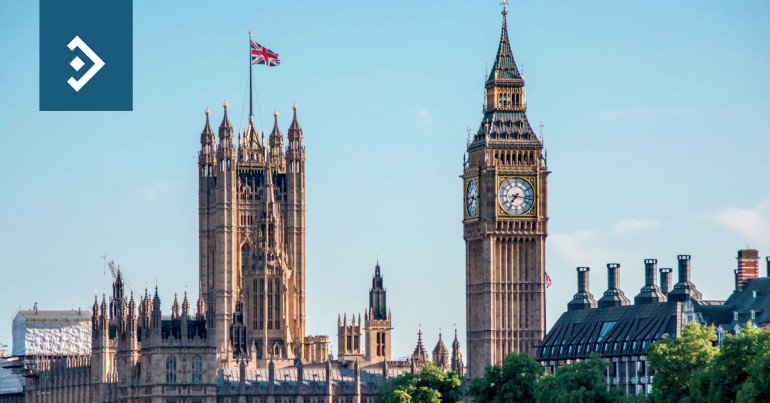
Sunak returns with economic plan
Morning mid-market rates – The majors
20th October: Highlights
- UK inflation rises to 10.1%
- US economy still running hot
- Double-digit inflation about to hit the EU mainland
GBP – PM confirms triple lock on pensions
When she won the ballot to be named leader, one of her staunchest allies was Suella Braverman who she made Home Secretary. It is a sign of just how far Truss has fallen that not only did Braverman use a technical indiscretion as an opportunity to tender her resignation, but she also felt the need to voice her feelings over the mistake that have been made in the past few weeks.
Grant Schapps grabbed the opportunity to fill one of the most senior roles in the cabinet with both hands.
While she never actually confirmed that she intended to remove the triple lock on state pensions, which was a Conservative Party manifesto commitment, it had become clear over the past few days that the pledge was under severe threat.
Truss confirmed yesterday, that the rate of state pensions would rise by an amount equal to the rate of inflation, which is clearly higher than either of the other two options which were average earnings and 2.5%.
Inflation data for September was released yesterday. Headline inflation rose by 10.1 % last month. This is significant for a number of reasons, but primarily because the September data is used to measure benefits increases.
If this Government remains in power and stands by its commitments, the state pension and several other benefits will be increased by 10.1% next year.
Former Chancellor Rishi Sunak, who Liz Truss defeated in the ballot for leader, reappeared yesterday with his blueprint for the economy. He was opposed to the economic plan put forward by the Prime Minister that has now largely been discarded.
He feels that a great deal of consultation should take place for the Government not to be seen as elitist and dictatorial, given the size of its majority and the realistic fact that they will see out this Parliament.
Sterling has recovered some poise in the foreign exchange market but doesn’t have the impetus to rally strongly above the level it was at when the entire economic debate began.
Yesterday, it fell to a low of 1.1185 against the dollar and closed at 1.1218
Recommend our services and earn up to £75 per successful referral
USD – Economy slows, but inflation still rising
Having said that, they also revised the rate of output of the economy significantly lower, due to slow gains in labour force participation.
Having already taken the decision to hike interest rates by seventy-five basis points at that meeting, it will need to take note of economic performance in the ensuing period and tread carefully in deciding the level of hike it decides upon at the upcoming meeting on November 2nd.
The reason that inflation remains high is the time it has taken the FOMC, acting prudently, to raise short-term interest rates to a level which restricts growth.
While speculation continues about when the Fed will end the present cycle of higher rate, speculation remains that rates will eventually hit 5%.
While that is considered an extremely hawkish view in the current environment, some FOMC members still believe that the economy can take interest rates at such levels without being the cause of a recession.
Core inflation is still running at 6.2%, its highest level since 1982 and while it is expected to gradually fall in the coming months, the Fed will need to remain active to be able to claim victory in a battle that has become increasingly entrenched.
The prospect of still higher interest rates is a significant factor driving the Dollar index to new levels.
Yesterday, it rose to a high of 113.09, closing at 112.90. It is still close to its recent highs, but traders are reluctant to take on new long positions at these elevated levels without positive signals from the Central Bank.
EUR – Economy set for significant pressure
There have been a number of arguments put forward for a further bout of weakness, which could easily threaten the all-time low of 0.8225 which was reached in October 2000.
Banks who have been brave enough to predict a level for a new low are pointing to 0.7500 as a reasonable target,
The only thing that is apparently placing a follow under the single currency for now is the fact that there could be a coup staged by the more hawkish Central banks which make up the ECB in which they force short-term interest rates higher in far larger increments. This would coincide with the FOMC and other G7 nations bringing to an end their own tightening policies,
Of course there is little doubt that this would lead the Eurozone into a major recession. Some feel a moderate recession – where the economy contracts by 2.5%, but inflation remains close to 10%, would be more damaging in the long-run than a deep recession in which the Central Bank maintains a degree of control – where the economy contracted by 0.4% but inflation was closer to target.
While various scenarios are put forward, the ECB still carries the burden to produce a rate hike next week which allows Christine Lagarde to maintain at least a semblance of credibility.
Trying to decipher the comments made recently by the Bank’s Chief Economist, it is fairly certain that rates will be increased in all likelihood by seventy-five basis points. But based on the Fed’s experience, where it has taken a significant time for rates to reach a neutral level, we could see a one hundred basis point hike delivered. That would certainly please the more hawkish members of the Governing Council.
The Euro fell back against a strengthening Dollar yesterday. It fell to a low of 0.9757 and closed at 0.9772.
Alan Hill
Alan has been involved in the FX market for more than 25 years and brings a wealth of experience to his content. His knowledge has been gained while trading through some of the most volatile periods of recent history. His commentary relies on an understanding of past events and how they will affect future market performance.



